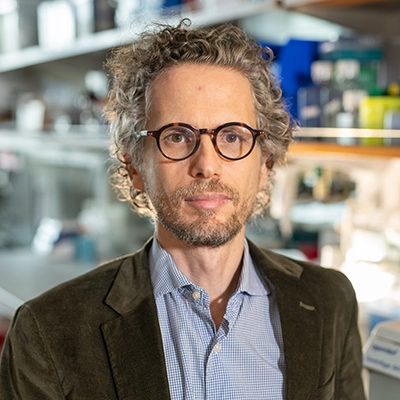Physician-scientists at NewYork-Presbyterian and Weill Cornell Medicine and the New York Genome Center have developed an artificial intelligence-powered system for detecting tumor DNA in blood that demonstrates unprecedented sensitivity in predicting cancer recurrence, research shows. Dan Landau, MD, PhD, an oncologist at NewYork-Presbyterian and Weill Cornell Medicine and a core member of the New York Genome Center, was the senior author on the recently published study in Nature Medicine.
The whole genome sequencing platform uses machine learning to detect circulating tumor DNA (ctDNA) single-nucleotide variants (SNVs) and copy-number variants (CNVs), which are used as markers to assess the presence of cancer cells. The platform, called MRD-EDGE, has been able to detect minimal residual disease (MRD) in patients with lung cancer, melanoma, breast cancer, and colorectal cancer several months faster than standard methods.
Our hope is that by providing faster and more accurate information to oncologists, patients at greatest risk for cancer recurrence receive timely additional treatment, and those less likely to have a recurrence are spared costly and toxic chemotherapy treatment.
— Dr. Dan Landau
Highly Sensitive Testing and Monitoring
The MRD-EDGE system provides a level of sensitivity that has not been available with previously developed liquid biopsy approaches, due to a combination of advances in whole genome sequencing and artificial intelligence. In a series of studies across breast, lung and colorectal cancer, the researchers trained the MRD-EDGE platform to recognize patient-specific tumor-mutations after therapeutic interventions, and it predicted residual cancer many months prior to cancer recurrence. This demonstrates the potential for this AI-powered system to provide real-time clinical information in oncology. “Our hope is that by providing faster and more accurate information to oncologists, patients at greatest risk for cancer recurrence receive timely additional treatment, and those less likely to have a recurrence are spared costly and toxic chemotherapy treatment,” says Dr. Landau.
The MRD-EDGE system also showed high sensitivity in tracking response to neo-adjuvant therapy on early-stage lung cancer. “This shows the potential to use this technology to monitor the success of neoadjuvant therapy and provide important real-time information to guide additional treatment,” he adds.
Similarly, another experiment showed that MRD-EDGE could detect precancerous colorectal polyps noninvasively. While this approach could not be used for colorectal cancer screening, it shows ctDNA may be present without invasive disease, allowing it to be detected with future, highly sensitive detection approaches.
No Biopsy Needed
The MRD-EDGE platform is so sensitive that it offers the possibility of providing accurate tumor information based solely on a blood test, without the need for a tissue sample from the primary tumor. In one test, the researchers showed that even without pre-training on sequencing data from the patients’ tumors, MRD-EDGE could detect responses to immunotherapy in melanoma and lung cancer patients – weeks before detection with standard CT scans. “There are times when oncologists don’t have access to tumor samples, or the quality is not good enough for additional testing, so this technology has the potential to overcome this barrier by only using plasma samples,” says Dr. Landau. “This is the first step toward using whole genome sequencing without the matched tumor.”
This is the first step toward using whole genome sequencing without the matched tumor.
— Dr. Dan Landau
Moving to Whole Genome Sequencing
These latest findings are the culmination of years of research on how to detect residual disease noninvasively using genetic sequencing. For a few years, the researchers pursued the prevailing paradigm that deep-targeted DNA sequencing was the best approach to identify residual disease. "In 2020, my colleagues and I realized that the technology was not sensitive enough to detect MRD in a single blood sample even if it was sequenced in such a way that every last DNA fragment was used,” says Dr. Landau. “So, we turned to broad, whole genome sequencing as a pathway to greater sensitivity.”
With each step, we are moving closer to delivering on the promise of giving oncologists real-time information on tumor growth from a single, noninvasive test. MRD-EDGE addresses a big need, and I’m excited about its potential to change the way we approach treating cancer.
— Dr. Dan Landau
Next Steps
There continue to be challenges in scaling up this approach, but Dr. Landau and the research team have made tremendous progress in just the last few years. The next step is to see how the MRD-EDGE platform performs when oncologists are making clinical decisions based on its information. It is already being used in clinical trials and that work is expected to expand. In the meantime, the researchers are pushing the technology further, working with new sequencing methods to reduce errors. “With each step, we are moving closer to delivering on the promise of giving oncologists real-time information on tumor growth from a single, noninvasive test,” says Dr. Landau. “MRD-EDGE addresses a big need, and I’m excited about its potential to change the way we approach treating cancer.”




